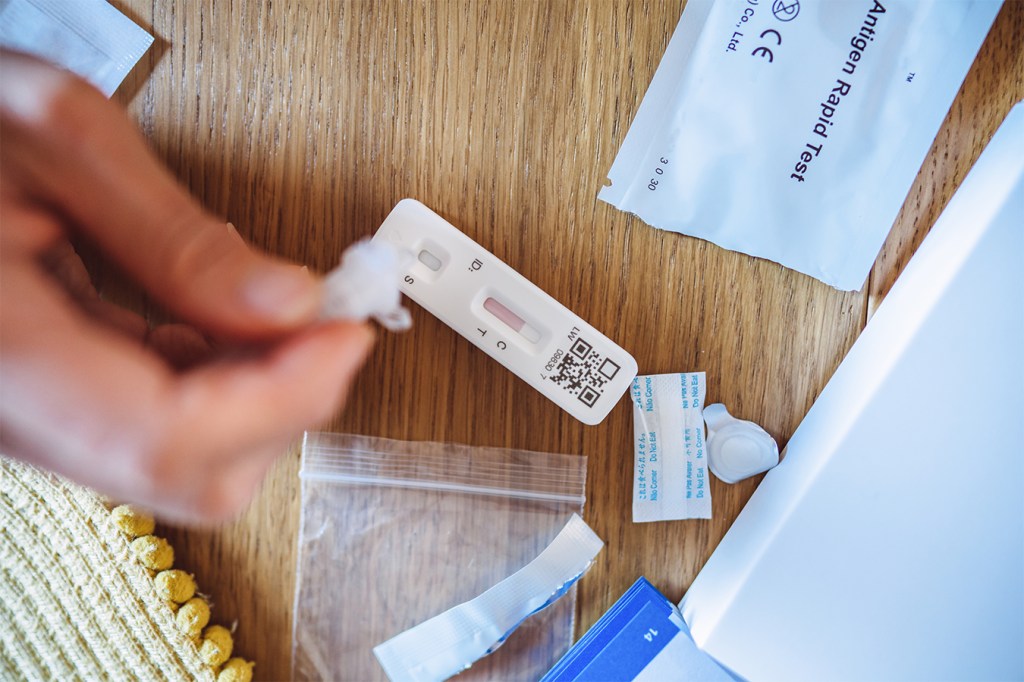
Individuals with Type 1 diabetes have a smaller pancreas than people without diabetes. This is surprising because insulin-producing beta cells account for just a small fraction of the pancreas, so the loss of beta cells in Type 1 diabetes would not be expected to reduce pancreas size.
Now, a study of one family from Alabama has led Vanderbilt University Medical Center researchers to discover that insulin deficiency, independent of the autoimmunity associated with Type 1 diabetesis the principal factor leading to a markedly smaller pancreas.
Four members of this family of eight have monogenic diabetes from a rare mutation in the insulin gene, leading to insulin deficiency without autoimmunity. Magnetic resonance imaging (MRI) of the pancreas showed a reduced size and altered shape in the individuals with diabetes. This was similar to what had previously been observed in individuals with Type 1 diabetes. These new findings are published in Diabetes Carea journal of the American Diabetes Association.
“This is a wonderful story about the power of a single family to inform us about the process of a disease that affects millions of people,” said Daniel Moore, MD, Ph.D., associate professor of Pediatrics in the Ian Burr Division of Pediatric Endocrinology and Diabetes. “There are not many families, especially not large families, who are known to have exactly this form of diabetes, who could come forward to help us answer this question. But they responded to the call, and they’ve provided a really clear answer to a fundamental biologic question.”
About two decades ago, David Pursell and his wife, Ellen, agreed that he and three of their six children who were diagnosed with diabetes would participate in research with the hope more could be learned about the disease. It was as simple as giving a little blood.
They were surprised years later when a researcher from the University of Chicago’s Kovler Diabetes Center called to tell them that advances in science had revealed that the four actually had monogenic diabetes due to a mutation in the insulin gene instead of Type 1 diabetes.
Last year, the Pursells were contacted by VUMC researchers who were collaborating with Siri Greeley, MD, Ph.D., and colleagues at the Kovler Diabetes Center’s Monogenic Diabetes Registry. The Vanderbilt research team asked if the family could travel to Nashville to have precise measurements of their pancreas taken at the Medical Center.
The VUMC research team, which includes Moore, Jordan Wright, MD, Ph.D., Jon Williams, Ph.D., Melissa Hilmes, MD, and Alvin C. Powers, MD, along with colleague Jack Virostko, Ph.D., at The University of Texas at Austin, had previously found the reduction in pancreas size was present at the time of Type 1 diabetes diagnosis. The Vanderbilt investigators had also organized an international team, the Multicenter Assessment of the Pancreas in Type 1 Diabetes (MAP-T1D), to develop a standardized MRI imaging protocol to assess pancreas volume and microarchitecture.
“We know the pancreas is much smaller in individuals with Type 1 diabetes, but there haven’t been good models to understand exactly what’s going on,” said Wright, an instructor in the Division of Diabetes, Endocrinology and Metabolism and first author on the manuscript. “This is the first time we can actually demonstrate in humans that insulin is a major factor in determining pancreas size and the loss of it leads to a much smaller pancreas.”
David and Ellen and their now adult childrenPeggy Rice, Vaughan Spanjer, Chrissy Adolf, Ramsey Nuss, and twin sons Parker and Martin Pursell, each had their pancreas size measured using the standardized Vanderbilt MRI protocol. David, Chrissy, Parker and Martin have monogenic diabetes.
“When we talked to the doctors at Kovler, they asked if we’d be interested in participating in some trials or research and we said, ‘Of course, anything we can do,'” said David Pursell. “When we learned our diabetes was not caused by an immune response due to our islet cells being attacked by antibodies, then we thought maybe we’ve got the chance of getting an islet cell transplant.
“But also, we’re obviously all in this together. If, by virtue of our family volunteering for this research we can help anyone else, we felt like it would be worth it.”
More information: Jordan J. Wright et al, Insulin Deficiency From Insulin Gene Mutation Leads to Smaller Pancreas, Diabetes Care (2023). DOI: 10.2337/dc22-2082
Citation: Family’s participation key to advancing diabetes research (2023, March 11) retrieved 15 April 2023 from https://medicalxpress.com/news/2023-03-family-key-advancing-diabetes.html
This document is subject to copyright. Apart from any fair dealing for the purpose of private study or research, no part may be reproduced without the written permission. The content is provided for information purposes only.
Note: This article have been indexed to our site. We do not claim legitimacy, ownership or copyright of any of the content above. To see the article at original source Click Here













